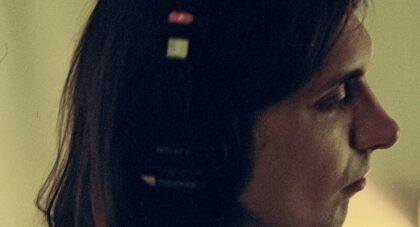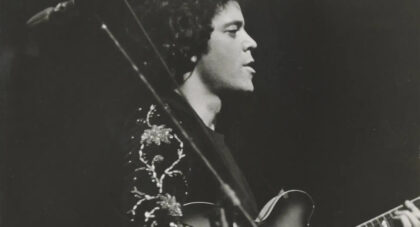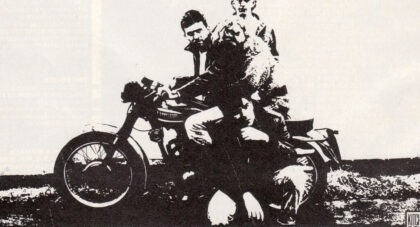This past January, Doug Paisley released his third full-length, Strong Feelings, via No Quarter Records. Regular collaborator Garth Hudson returns on the piano, along with Emmett Kelly, Robbie Grunwald and Mary Margaret O’Hara. Living up to its title, the album is a poignant collection of warm, subtle country-folk, though it finds Paisley exploring new sonic territories and reaching across genres. We caught up with Paisley over the phone, from his home in Toronto, and discussed his new approach for recording this record, the importance of narrative and, of course, Neil Young.
Aquarium Drunkard: I understand, with this album, you took a lot more time and had a lot more people involved than you have previously. What spurred this new approach?
Doug Paisley: The last few recordings I’ve done, prior to this one, were done very quickly; live in the studio in one day or so. I guess I wanted to not keep doing the same thing and just see what it would be like to take a little more time and to get more input from more people. So it was kind of curiosity and also just being able to do that too. In the past, there have been constraints that sort of force you to only spend a day in the studio, financial and otherwise, so this was a bit more of an opportunity.
AD: Did you enjoy that process?
Doug Paisley: I did. I mean, I’ve always found that the fewer options you have, the easier things are and, if you give it some time, whatever you end up making usually ends up sounding right. So, it did mean a little more decision-making. I don’t know if that part helped it all that much, but I did enjoy the process. Being in the studio is a lot of fun. You spend a lot of time songwriting and a lot of time touring and playing and most people don’t get to spend a lot of time in the studio, so it’s kind of a thrill. Like that Metallica movie where they’re in the studio for 700 takes or something. But I think for a lot of artists like me, nowadays, it’s more like a week tops. So, that part was a lot of fun.
Only the good shit. Aquarium Drunkard is powered by its patrons. Keep the servers humming and help us continue doing it by pledging your support.
To continue reading, become a member or log in.


